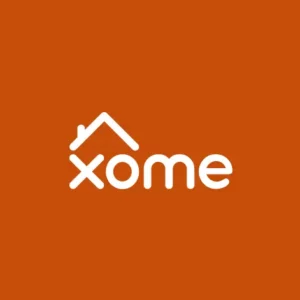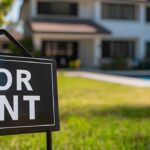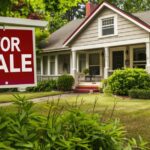For struggling homeowners, foreclosure can represent an agonizing last resort. Families may be facing profound hardship and stress as they go through the process of foreclosing on their homes. Meanwhile, neighbors often assume the worst — that nearby foreclosures will depress their property values long term.
The bulk of the published research backs up this negative relationship between foreclosure and home value. Most of those studies focus on the housing crisis from 2007 to 2011, when there was no question that foreclosures were depressing home values in impacted areas. But what about the period of recovery that followed? Does more recent data uphold the claim that foreclosures harm neighborhood property values?
A groundbreaking new study by Xome set out to debunk these common myths. Led by independent consulting economist Dr. Jim Murdoch, this study analyzed over 1.13 million data points across 16 major metro areas focusing on the market rebound from 2013 through 2018. The data unveils new insights about how nearby foreclosure sales actually impact surrounding home values in neighborhoods across the United States.
Do foreclosure sales have a deep effect on neighborhood values?
The long-held assumption is that nearby foreclosures will diminish surrounding property values. But Xome’s study reveals this is not necessarily the case.
In most metropolitan areas studied, foreclosures had minimal, statistically insignificant effects on the surrounding neighborhoods. Home values tended to dip slightly before stabilizing less than a
year after the processed foreclosure.
California is an exception in the study, with more significant effects tied to foreclosures across its metros. This could have stemmed from local economic factors or from substantial market corrections after inflated house appreciation during the subprime mortgage crisis.
Despite the outlying data, for the majority of the metros studied, this finding disproves the notion that foreclosures inevitably cause lasting damage to neighborhood values.
Do foreclosures always depress neighborhood values and make it harder to sell?
No one undertakes a foreclosure lightly—if at all possible, we want to keep families in their homes. But the prevailing narrative when foreclosures happen cast them as irreparably damaging to home values.
Despite popular myths, efficiently recycling foreclosed homes can actually benefit struggling neighborhoods. Swiftly reselling and rehabilitating these properties injects affordable inventory into the market, which can attract new buyers and activate demand for foreclosed and traditional properties alike.
The data suggests that selling foreclosure backlogs after 2013 may have even boosted previously hard-hit neighborhoods. Foreclosure sales can draw positive interest and attention to these communities and spur organic demand and growth in local markets.
As foreclosed properties are recycled, it may drive new investment in the area. Rather than inflicting permanent damage, foreclosure sales can represent the first step in revitalizing a neighborhood.
Is it difficult for areas to recover from foreclosures?
Not only does the study data show that recovery from foreclosure sales effects is fairly quick, but many metros with initially high foreclosure rates actually saw above-average returns on repeat sales compared to areas with minimal foreclosures. For example, several New York neighborhoods witnessed returns
over 110% above average.
This signals that once foreclosed properties sell, values in these neighborhoods tend to bounce back rapidly. Appreciation can even exceed comparable metro areas not impacted by foreclosures. Clearing foreclosure inventory paves the way for robust price growth and community revitalization.
The real truth about foreclosures
No matter the condition of the market, foreclosures shouldn’t be trivialized for struggling homeowners. They can be an extremely difficult situation for a homeowner and their family and one to be avoided if at all possible. But when all other avenues are exhausted, the data shows foreclosures aren’t necessarily the end of the line for neighborhoods.
The truth is, while foreclosures may feel like a storm cloud, foreclosure sales can signal brighter days ahead and not continued decline. Efficiently recycling foreclosed homes can provide affordable housing options, draw interest from buyers, and spark revitalization. Properties that once represented hardship can transform into new opportunities.
Xome’s analysis adds much-needed nuance to dated studies that paint foreclosures as universally detrimental. This metro data shows that, with smart strategies and community support, most neighborhoods respond well to foreclosure sales, rebound quickly, and have the potential to come back stronger than ever.







